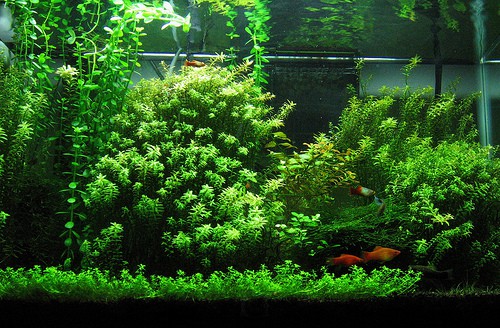The most important thing to understand when looking at Kh (also known as carbonate hardness) or any other measurement, is that fish live so completely in their environment that we need to balance it for them. The term “kh” refers to the amount of calcium in the water. Whether it is hard water (high level of calcium in the water) or soft water (low level of calcium in the water).
 If your water tends to have a high amount of calcium in the water and your fish are low kh or soft water fish, then they fish will simply not aborb all the calcium in the water and should be ok. However, if your fish is a hardwater fish and your water is soft or low kh, it will have a hard time thriving or even surviving as it will not be able to absorb enough calcium from the water.
If your water tends to have a high amount of calcium in the water and your fish are low kh or soft water fish, then they fish will simply not aborb all the calcium in the water and should be ok. However, if your fish is a hardwater fish and your water is soft or low kh, it will have a hard time thriving or even surviving as it will not be able to absorb enough calcium from the water.
Low kh is hardest on plants, so if your fish are herbivores and you keep plants to feed them, then having low kh could in the end be hard on your whole tank.
API CARBONATE HARDNESS TEST KIT Aquarium Water Test Kit 1-Count
Features:- Contains one (1) API CARBONATE HARDNESS TEST KIT Aquarium Water Test Kit, including 1 bottle of testing solution, 1 colour card and 1 glass test tube with cap
- Helps monitor water quality and prevent invisible water problems that can be harmful to fish and plants and cause fish loss
- Accurately measures carbonate hardness in freshwater and saltwater aquariums
- KH (Carbonate Hardness) stabilizes aquarium pH.
- Use weekly for monitoring and when water or fish problems appear



Related Posts
A Deeper Look In To Loach Fish Species
How Much Salt Should I Add To My Freshwater Aquarium
Everything You Need To Know About Using T5 Lights For Your Aquarium